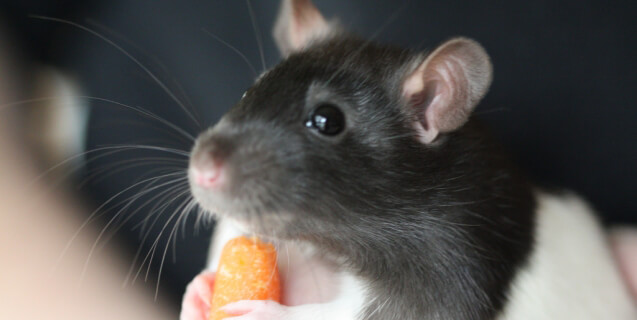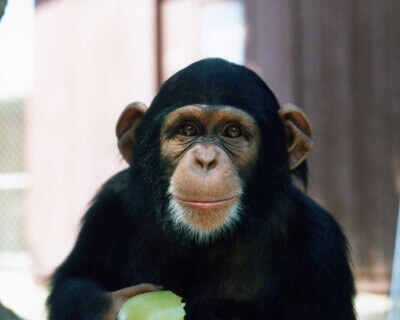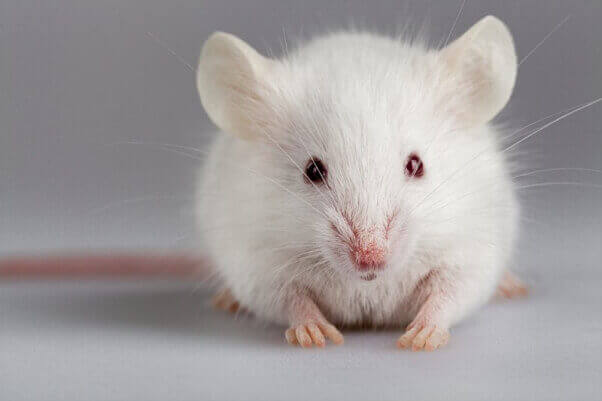Animal Experiments Are Morally ‘Unthinkable’
Last month, Nobel laureate J.M. Coetzee and more than 150 other leading thinkers endorsed a comprehensive report on animal experimentation by the Oxford Centre for Animal Ethics that concludes that the practice is “unthinkable” and that “[i]n terms of harm, pain, suffering, and death, this constitutes one of the major moral issues of our time.”
This report should be required reading for the entire scientific community. With a growing majority of the public now opposed to experimentation on animals, mounting evidence that the results from animal experiments rarely help humans, the existence of superior new technologies such as human-organs-on-chips and, perhaps most importantly, our undeniable awareness of other animals’ striking intelligence and emotional capacity, experimenters must stop viewing animals as mere tools for humans’ use and embrace non-animal research methods.
Even though we now know that animals from mice to monkeys experience not just pain but also fear, distress, loneliness, love and joy—in other words, the same wide range of emotions that humans do—more than 100 million animals continue to be locked alone inside barren laboratory cages, burned in painful tests, force-fed toxic chemicals, subjected to crippling surgeries, infected with viruses, traumatized in psychological experiments and deprived of nearly everything that makes life worth living.
For example, the National Institutes of Health (NIH) continues to breed baby monkeys to suffer from mental illness, tear them away from their distraught mothers at birth, lock them inside tiny cages all alone and subject them to cruel experiments in which they’re tormented with fake snakes, blasted with loud noises and terrified by masked humans. Extremely social and intelligent beings, the traumatized monkeys—like human victims of torture—suffer from severe anxiety, depression, hair loss and other physical and mental illnesses and engage in self-destructive behavior such as biting themselves and pulling out their own hair. Not surprisingly, Dr. Jane Goodall and countless other experts in primate behavior and human psychology have joined PETA in calling for this to end.
The Department of Defense (DOD) still stabs, shoots and blows up thousands of pigs in archaic medical training exercises, even though its own studies show that modern simulators teach lifesaving battlefield medical skills better than mutilating animals does. The DOD banned the use of dogs for these violent training drills more than 30 years ago yet continues to maim pigs even though they suffer just as much and are just as smart, friendly and playful. Cambridge University’s Dr. Donald Broom has stated that “[pigs] have the cognitive ability to be quite sophisticated. Even more so than dogs and certainly [more so than human] three-year-olds.”
And countless rats and mice are still being burned and poisoned in unreliable and archaic chemical and personal-product tests, even though modern non-animal testing methods are more accurate, fast and economical. A big part of the problem is that the interests of these diminutive beings are unfairly written off because of their size, but—like humans—they wince when they’re hurt, giggle when they’re tickled, care deeply for their young and don’t hesitate to rescue their friends, and even strangers, when they’re in distress.
According to the Oxford Centre report, “The deliberate and routine abuse of innocent, sentient animals involving harm, pain, suffering, stressful confinement, manipulation, trade, and death should be unthinkable. Yet animal experimentation is just that: the ‘normalisation of the unthinkable.’” Indeed, treating other thinking, feeling animals like disposable laboratory equipment is unscientific, ignorant and inexcusable.
We can all help science move away from morally “unthinkable” experimentation on animals by refusing to buy cosmetics and household products that were tested on animals, boycotting health charities that fund experiments on animals and urging our lawmakers to redirect the billions of dollars they devote to cruel and ineffective animal studies each year to ethical, cutting-edge non-animal research.
Written by Justin Goodman, director of the Laboratory Investigations Department at PETA.




